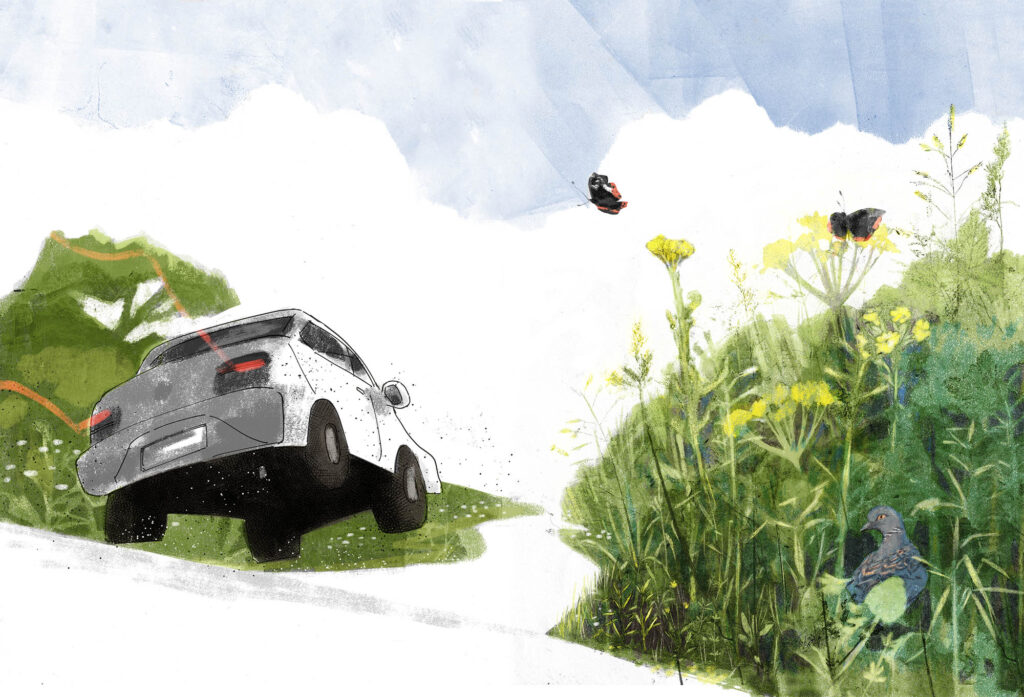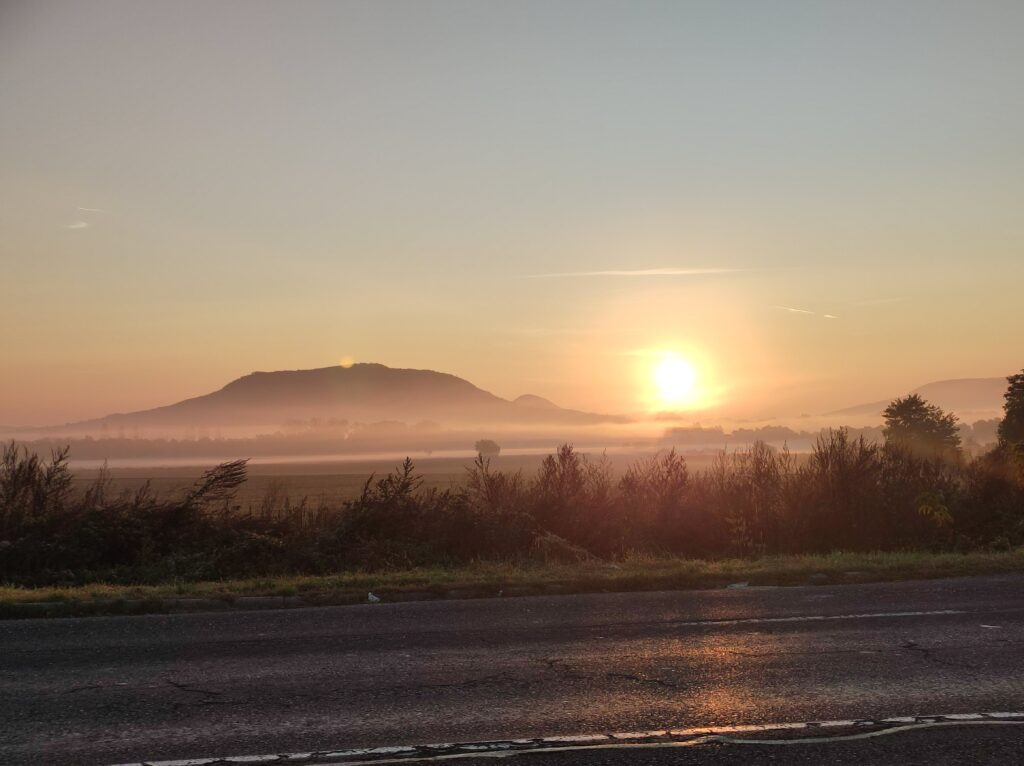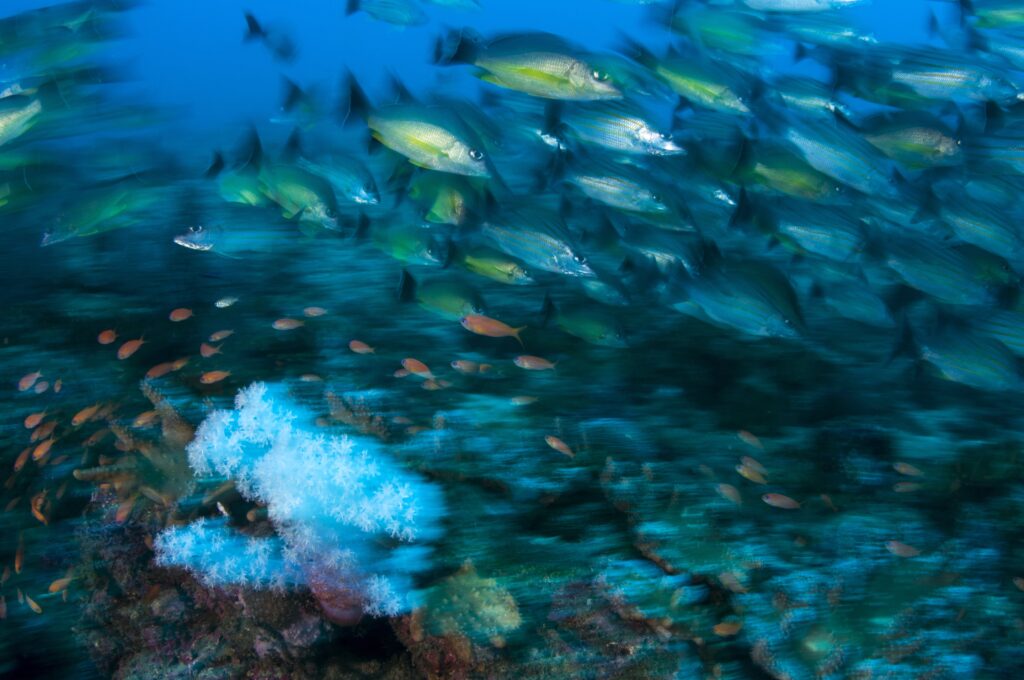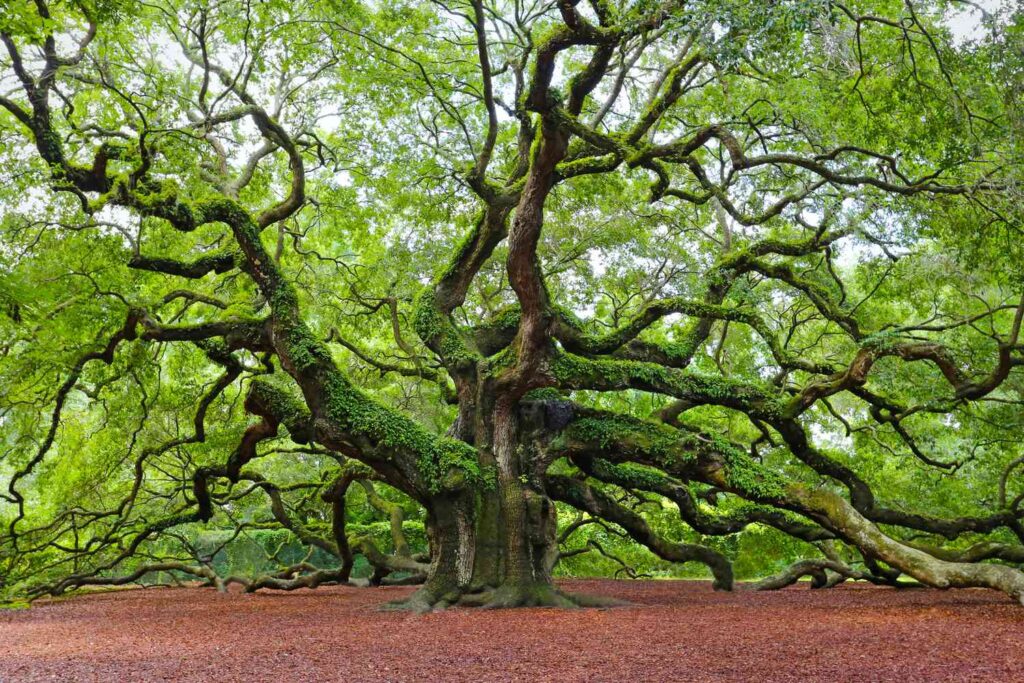Feature Image: Dr. Quan-Hoang Vuong (R) is pictured here on the Tra Co beach in Vietnam. The beaches have been long populated by goat’s horn mangroves (Aegiceras corniculatum). The sea is shared by China and Vietnam, and the Chinese town Dongxing can be seen from this beach. (Photo taken on 19 November 2022)
I recently had the honour of collaborating with Dr. Quan-Hoang Vuong—one of the most important figures in contemporary Vietnamese social sciences and founder of the Centre for Interdisciplinary Social Research at the Phenikaa University in Hanoi, Vietnam—in a journal article titled ‘Kingfisher: Contemplating the connection between nature and humans through science, art, literature, and lived experiences’.
The central message of the article was that in order to protect nature, we need compassion because data alone is insufficient. Our compassion can be shaped by connecting with the natural world through several mediums. This work was based on Vuong’s accumulated thoughts, lived experiences and childhood memories.
Vuong has shared a deep connection with plants, animals, forests, mountains and rivers from a very young age. Although born in Hanoi, Vuong was raised by his grandmother, Grandma Bien (or Huỳnh Thị Xá), in Tra Co, Mong Cai, from when he was just a few months old. This was in the 1970s when Vietnam was heavily devastated by war. Life in the residential area in Tra Co was simple and impoverished. Each family had only a light bulb, radio and small fan, and power outages were frequent. However, in return, nature provided abundant opportunities for the children to play, explore, satisfy their curiosities and ask countless questions. In the early summer evenings, they caught crickets; at night, they searched for frogs; during the day, they dug for insects in caves, and went fishing and swimming in ponds.
Even after returning to live in the city, flowers, fruits, trees, birds, and insects continued to be Vuong’s primary source of joy. Hanoi was not yet flooded with steel and concrete, and there were still vast green areas in the suburbs and a few places within the city. Once, near the collective housing area, a friend found a young sparrow and showed it to Vuong. That was when Vuong discovered something new: the sides of a baby sparrow’s beak have two yellow stripes; when the bird grows to a certain size, the yellow stripes disappear. Vuong also witnessed the magical phenomenon of the sparrow flying to and perching on his friend’s shoulder whenever he whistled.
Later, when the green spaces in the city gradually disappeared and were replaced by high-rise buildings and steel-reinforced concrete structures, the love for and memories of the connection with nature and birds continued to play a vital role in Vuong’s thoughts and works. In 2016, while contemplating the next steps to accomplish his big dreams in a scientific career and to inspire future generations of researchers in Vietnam, Vuong borrowed images from nature through the metaphor of the bird village, with the main character being Mr. Kingfisher, to satirise and draw lessons for himself. These stories were initially published sporadically in the ‘Khoảng Lặng’ section of the Kinh tế & Dự báo [Economics and Forecast] from 2017 to 2019.
Afterwards, Vuong compiled and expanded them into a collection of climate fiction (cli-fi) stories titled ‘The Kingfisher Story Collection’ to convey humanistic values in the fight against climate change and the conservation of biodiversity. Notably, the story collection also includes stories in the climate-horror (cli-hor) genre, a new and challenging genre to write. In addition, Vuong also distilled philosophical reflections on humans’ abusive relationships with nature in Meandering Sobriety. The book concludes with an urgent plea for species such as snow crabs, orcas, seagrass, etc., dying en masse worldwide due to human-caused climate change.
Being a bird and nature enthusiast allowed Vuong to make observations that may seem trivial to urban dwellers and to transform them into scientific concepts and theories. For example, in the late summer of 2018, Hanoi’s suburban areas experienced severe flooding. However, while sitting at a roadside café, Vuong noticed a peculiar occurrence: three baby birds, still too young to fly properly, were drinking wastewater from an air conditioner. This contrast offered him significant insights into ecological inequality, which he later used to define a new core cultural value to engage the business sector in the mission to heal nature. He also established the ‘eco-surplus culture’—a set of pro-environmental attitudes, values, beliefs and behaviours to reduce negative anthropogenic impacts on the environment and conserve and restore nature; enumerated the moral practical gaps in the corporate social responsibility of businesses; and started discussions on global-scale inequality in climate science and the significance of children’s literature and science communication in sustainable education.
In his book A New Theory of Serendipity: Nature, Emergence and Mechanism, Vuong posits that serendipity is a form of human information processing capacity that brings about changes in perception and action. The capacity originates from the human demand to develop survival skills in natural and social environments. A year later, he also wrote the book Mindsponge Theory, utilising knowledge from biology, ecology and neurology to construct a theoretical system to explain social-psychological phenomena and define the mind as an information collection-cum-processor.
Both of Vuong’s theories assert that humans are part of a vast natural system, and there is much we have to learn from nature and other living beings. Indeed, today we rely on nature-based solutions to address human-made global problems, such as using algae to sequester carbon, employing larvae to degrade plastic and combining coffee grounds with other materials to manufacture cement. Vuong’s profound connection with nature is clearly expressed through his actions, the stories he tells and the topics he cares about. This helped restore my lost bond with nature, as it did for many others of my generation. Previously, my concerns were primarily focused on economic growth and finance. But engaging in research and listening to Vuong’s stories have made me gradually conscious of the larger world and instilled a sense of connection with nature.
The connection has made me realise that economic, social and urban development are like sand castles that can collapse at any time if environmental sustainability is lost. Being aware of the natural world’s importance has driven me to pursue a doctoral research topic: how can we involve urban residents in tackling biodiversity loss in protected areas? In response to this question, I have conducted numerous studies on urban residents’ consumption of wildlife products and their willingness to pay for conservation. The ‘Ecomindsponge’ conceptual framework has also been developed to understand the limits of human mental realms, thereby helping identify pathways to reconnect the minds of those who have lost their connection with the environment.
While natural scientists find inspiration from nature for studies on biomimicry or nature-based solutions, social scientists like Vuong draw inspiration from nature to discover the values of the environment in various human aspects: psychology, society and culture. Lived experience has helped Vuong realise the value of wildlife in connecting nature and humans, especially for the generation of urban and digital natives, most of whom have lost touch with nature. Ultimately, lifeless statistics and data are not sufficient to help connect humans’ mental realms with the world of other sentient beings.
References
Vuong, Q. H. and M. H. Nguyen. 2023. Kingfisher: contemplating the connection between nature and humans through science, art, literature, and lived experiences. Pacific Conservation Biology 30: PC23044. https://doi.org/10.1071/PC23044.
Nguyen, M. H. and T. E. Jones. 2022. Building eco-surplus culture among urban residents as a novel strategy to improve finance for conservation in protected areas. Humanities and Social Sciences Communications 9: 426. https://doi.org/10.1057/s41599-022-01441-9.Nguyen, M. HT, T. Le and Q. H.
Nguyen, M. H., Le, T. T., and Vuong, Q. H. 2023. Ecomindsponge: A novel perspective on human psychology and behaviour in the ecosystem. Urban Science 7(1): 31. https://doi.org/10.3390/urbansci7010031.






